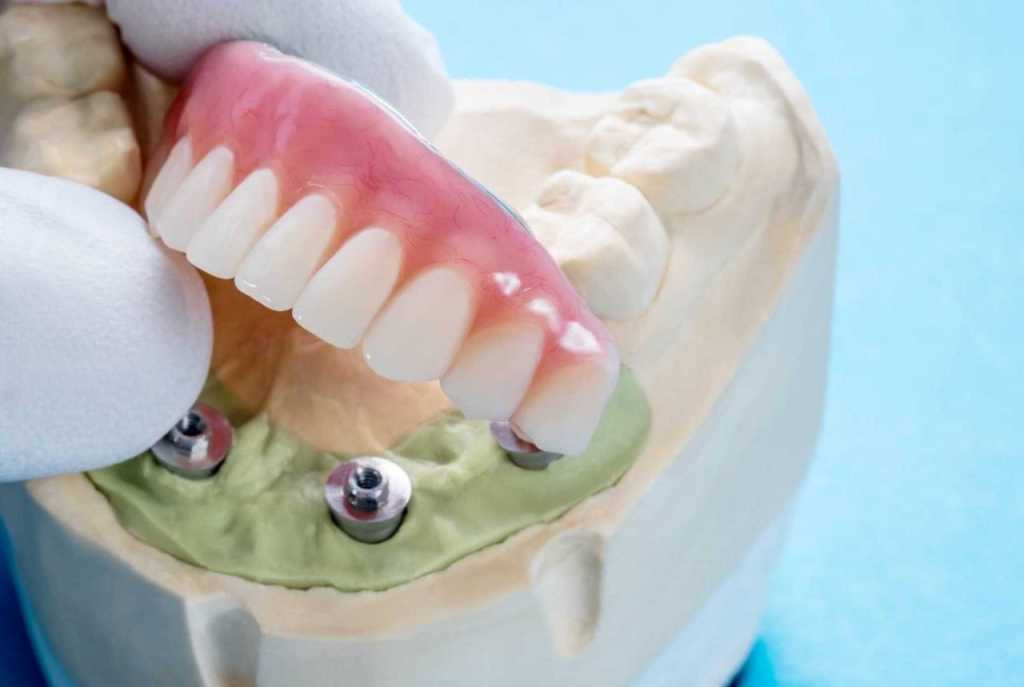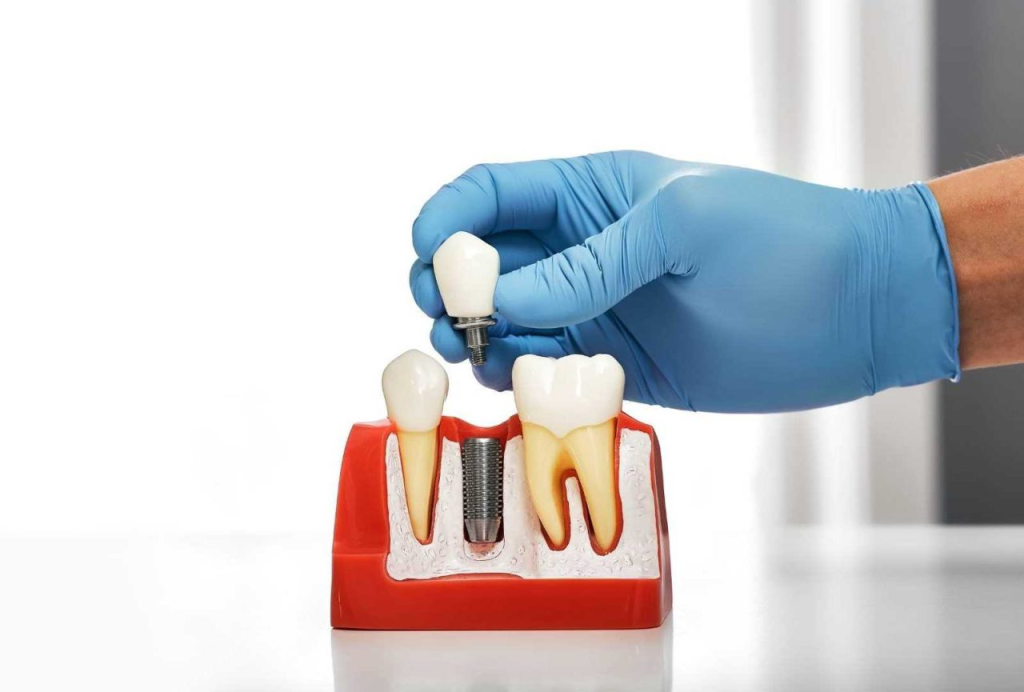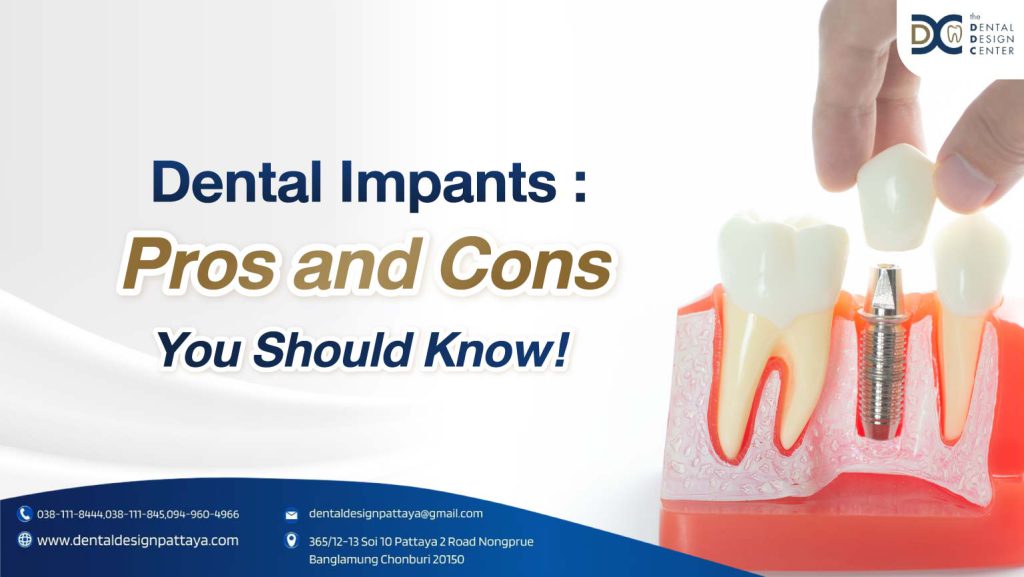Table of Content
Dental implants are one of the most effective dental procedures today. They offer a reliable solution to replacing lost natural roots. Implants provide a natural feel that resembles your original teeth, with minimal adverse effects on oral health. However, it is essential to weigh the benefits and drawbacks before deciding on implants.
How Do Implants Differ from Dentures?

Before diving into the pros and cons, let’s clarify the difference between implants and dentures. While some may think they serve the same purpose, they are distinct. Implants are securely anchored to the jawbone, functioning like natural roots to replace the lost tooth foundation. In contrast, dentures are removable and don’t replace the root, allowing for easier cleaning and replacement.
(Read more: What is the difference between dentures and dental implants ? Which type should be chosen for the best results?)
Pros of Dental Implant
Dental implants are currently the most effective solution for replacing missing tooth roots. With regular care and adherence to your dentist’s instructions, long-term issues can be minimized. Here are the main benefits of choosing dental implants:

1.Most Natural Feel
Dental implants are embedded directly into the jawbone, providing a sensation that closely resembles natural teeth. Each implant is customized to match the patient’s unique tooth size and color, ensuring a natural appearance without any noticeable differences after the procedure.
2.Durable Material
Made from titanium, dental implants utilize a highly biocompatible material known for its strength and resilience. With proper care, dental implants can last anywhere from 10 to 20 years, or even longer.
3.Improved Oral Health
Maintaining oral hygiene with implants is straightforward and resembles the care required for natural teeth. By practicing regular cleaning and careful usage, implants can help minimize oral health issues and contribute to overall oral well-being.
4.Boosted Confidence
A healthy smile—free from concerns such as tooth damage, discoloration, or gaps—can significantly enhance self-esteem. With dental implants, patients can feel confident without worrying about the appearance or stability of their teeth.
5.Reduced Risk of Gum Recession
Unlike dentures, implants do not require metal clasps that can rub against the gums and lead to recession. Additionally, implants help prevent neighboring teeth from shifting out of position.
6.Convenience
Unlike dentures, which must be removed for cleaning, implants are permanently fixed in the jawbone, eliminating the inconvenience of removal or the risk of losing them.
Cons of Dental Implants
While dental implants provide many advantages, they also have several drawbacks and limitations that should be carefully considered before undergoing the procedure. Here are some of the main disadvantages.

1.High Cost
Dental implants are more complex and involve high-cost materials compared to traditional dentures, making them significantly more expensive.
2.Numerous Restrictions
Dental implants come with specific limitations, both before and after surgery. Not everyone is a suitable candidate; individuals with insufficient or weak jawbone, or those under 18 (since their jawbone may not be fully developed), may not be eligible.
3.Long Treatment Duration
The process for dental implants can be time-consuming, especially if additional steps, such as bone grafting, are necessary. For some patients, the entire process may take up to a year to complete.
4.Not Suitable for Patients with Certain Health Conditions
Patients with chronic conditions that require continuous medication, such as diabetes or severe arthritis, may not be ideal candidates for implants. However, eligibility varies, and a thorough consultation with a dentist can help assess risks and determine potential suitability.
5.Risk of Complications
Dental implants involve surgery, which inherently carries risks of complications, such as infection at the implant site. This can lead to symptoms like swelling, redness, or pain and may require further treatment. Following post-surgery care instructions and maintaining regular consultations with a dentist can help minimize these risks.
Conclusion
Dental implants have both advantages and disadvantages that need careful consideration. It’s important to understand the benefits and potential risks to make an informed decision. If you are interested in dental implants, it’s advisable to conduct thorough research and consult with a dentist for personalized recommendations before moving forward.
Searching for a dentist in Pattaya? Pattaya has excellent dental clinics with skilled professionals ready to handle everything from routine cleanings to advanced treatments, providing high-quality care for both locals and international visitors
For those seeking a dental clinic in Pattaya that offers implant services, Dental Design Center is an excellent choice. Our comprehensive dental clinic features a team of specialists and advanced equipment that meet international standards. For more information or inquiries, please contact us at 094-960-4966 or visit our website.

